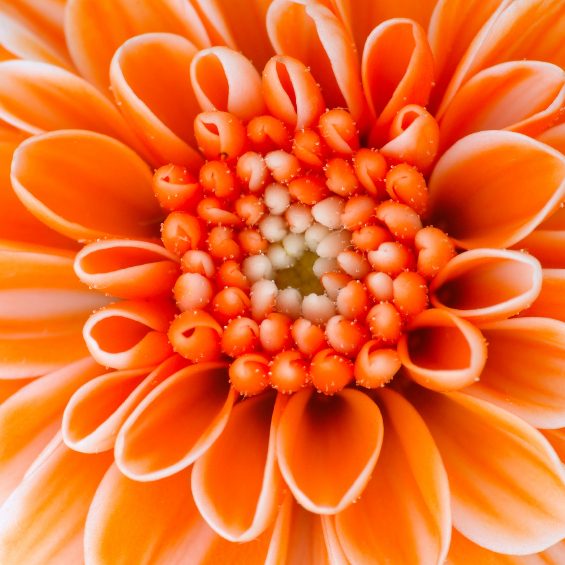If intercourse is hurting you, you are less likely to want to try for a baby, and for good reason; sex just isn’t feeling good anymore. Even worse, you may go ahead and try to ignore the pain, just so you can try to get pregnant, which may make the underlying cause worse.
Painful intercourse, known as dyspareunia, is a common condition, estimated to affect up to 20% of women in the US. It is most commonly experienced by postmenopausal women, though is not uncommon before. Up to 2% of women experience regular pain during intercourse. For as many as 15% of women, painful intercourse may occur up to a handful of times each year. Painful intercourse can affect both men and women, though is more common in women.
Symptoms of Painful Intercourse
Pain can occur both during and after intercourse. There are a number of possible causes of painful intercourse, and so there are various symptoms associated with this condition. Pain can be felt:
- at the point of penetration
- during sex
- during orgasm
- after sex
The timing of the onset of pain may help to determine the cause. Make note of any patterns and write down any details that could help your gynecologist to diagnose the underlying condition.
Depending on the underlying condition, you may find the pain to be:
- sharp
- sudden
- like a burning sensation
- throbbing
- dull
- causes extreme tenderness
- like menstrual cramps
Descriptions of the pain will also be useful for diagnosis, so keep note of the type of pain and the duration.
There are a number of potential causes of painful intercourse, so the more information you are able to give your gynecologist, the sooner they will be able to rule out some possible causes.
Possible Causes of Painful Intercourse
Pain during and after sex can be felt in the vagina or deeper in the pelvis.
Vaginal pain could be caused by:
- a sexually transmitted disease such as chlamydia or gonorrhea
- an infection such as thrush (yeast infection)
- vaginismus - this is the involuntary and often painful tightening of the vaginal muscles at the time of attempted penetration
- menopause - the hormonal changes experienced during menopause can cause vaginal dryness and decreased sex drive
- a lack of arousal - vaginal dryness can cause pain during and after sex
- genital irritation or allergic reaction to spermicides, latex or hygiene products
- a psychiatric problem - stress, anxiety, and depression can reduce the libido and cause painful intercourse. A history of sexual abuse could also cause anxiety around sex and intimacy that could lead to painful intercourse
Pelvic pain during and after sex could be caused by:
- a pelvic inflammatory disease – often an asymptomatic condition which can cause deep pelvic pain during and after sex
- endometriosis - according to research, around half of all women with endometriosis suffer from painful intercourse
- irritable bowel syndrome - sex can apply pressure to the intestines, causing pain to be felt deep in the pelvis
- uterine fibroids - noncancerous tumors of tissue on the uterus can cause pelvic discomfort both during and after sex
- uterine contractions - strong uterine contractions during and after orgasm can cause painful cramping
When to See a Doctor
Some women feel nervous about visiting a health professional about painful intercourse; however, the pain could be your body’s way of warning you that something is wrong. If left untreated, painful intercourse can decrease sex drive, reduce enjoyment during sex, and increase anxiety before, during, and after sex. Pain during intercourse should be resolved prior to trying to conceive, to rule out any infection and underlying condition.
If you experience pain during or after sex, you should discuss this with your gynecologist. Your gynecologist is best placed to diagnose the cause of the pain and advise on treatment options.
You should make a note of any other symptoms that could be related to your condition, such as:
- vaginal bleeding
- irregular periods
- vaginal discharge
- involuntary muscle contractions
- vaginal dryness
Be sure to discuss these symptoms with your doctor, as they may help your doctor to give a proper diagnosis. There are many natural options to help with any of the above symptoms, but again, first it is important to have a doctor rule out infection or underlying reproductive health issues before deciding the best course of action.
- Publications, H. H. (n.d.). When sex gives more pain than pleasure. Retrieved from: http://www.health.harvard.edu/pain/when-sex-gives-more-pain-than-pleasure
- American Congress of Obstetricians and Gynecologists. (n.d.). When Sex is Painful. Retrieved from: http://www.acog.org/~/media/For%20Patients/faq020.pdf?dmc=1&ts=20140608T1152341150
- Why does sex hurt? – Health questions. (n.d.). Retrieved from: http://www.nhs.uk/chq/pages/974.aspx?categoryid=118
- Castleman, M. (n.d.). Does Intercourse Hurt? A Guide to Women’s Sexual Pain. Retrieved from: https://www.psychologytoday.com/blog/all-about-sex/201205/does-intercourse-hurt-guide-women-s-sexual-pain
- Why Sex Hurts With Endometriosis. (n.d.). Retrieved from: http://www.everydayhealth.com/womens-health/why-sex-hurts-with-endometriosis.aspx





